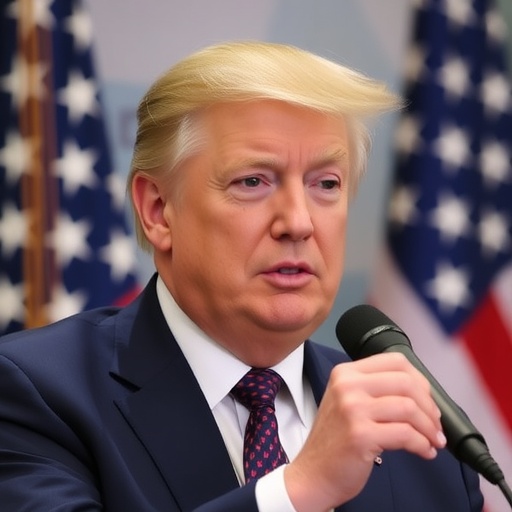Zelensky Calls on Trump Administration to Ramp Up Russian Oil Sanctions Targeting Entire Sector
In a bold move amid escalating tensions in the ongoing Ukraine conflict, President Volodymyr Zelensky has directly appealed to the incoming Trump administration to expand oil sanctions against Russia far beyond the current restrictions on just two major companies, Rosneft and Lukoil. Speaking during high-stakes meetings with European leaders in London, Zelensky emphasized that limiting Russian sanctions to these entities is insufficient to cripple Moscow’s war machine funding, urging a comprehensive overhaul of the measures to target the entire Russian oil industry.
This plea comes at a critical juncture, as Ukraine faces intensified Russian assaults on its eastern fronts and struggles with dwindling resources. Zelensky’s call highlights the urgency of tightening the economic noose around Russia’s energy exports, which continue to fuel the Kremlin’s military ambitions despite Western efforts. The Ukrainian leader’s words, delivered on the sidelines of discussions focused on bolstering Ukraine’s defense capabilities, underscore a growing frustration with the pace of international responses.
“We cannot allow Russia to profit from its aggression unchecked,” Zelensky stated firmly during a press briefing at the UK Foreign Office. “The Trump administration has the opportunity to lead decisively—expanding oil sanctions to the full spectrum of Russia’s energy sector will send a clear message and provide Ukraine with the breathing room it desperately needs.”
Zelensky’s London Summit: Forging Alliances for Ukraine’s Survival
The London meetings, hosted by British Prime Minister Keir Starmer and attended by key European figures including German Chancellor Olaf Scholz and French President Emmanuel Macron, served as a pivotal platform for Zelensky to rally support. Over two days of intensive talks, the agenda centered on Ukraine’s immediate defense needs, from advanced weaponry to long-term economic aid. Zelensky arrived in the UK capital fresh from battlefield reports of Russian advances near Kharkiv, where Ukrainian forces have been holding the line against superior numbers.
During the summit, Zelensky didn’t mince words about the inadequacy of existing sanctions. He pointed out that while the US and EU have imposed measures on Rosneft and Lukoil since the full-scale invasion in February 2022, these giants still manage to reroute oil through shadowy networks to buyers in China and India. “Targeting two companies is like plugging a leak in a sinking ship with a single bandage,” Zelensky remarked, drawing applause from the assembled leaders. The discussions also touched on secondary sanctions for entities helping Russia evade restrictions, a tactic Zelensky hopes the Trump administration will aggressively pursue.
European leaders echoed Zelensky’s concerns, with Starmer announcing an additional £2.5 billion in military aid to Ukraine, including air defense systems and artillery shells. Scholz, under domestic pressure to increase support, committed to delivering more Leopard tanks, while Macron pledged enhanced intelligence sharing. Yet, the shadow of the US presidential transition loomed large—Zelensky’s direct address to the Trump administration was a calculated effort to influence policy before Donald Trump’s January inauguration.
Insiders reveal that Zelensky’s team prepared detailed briefings for the summit, including data on how Russian oil revenues have sustained the war. According to Ukraine’s intelligence estimates, Russia earned over $180 billion from fossil fuel exports in 2023 alone, even under sanctions, funding everything from drone strikes to troop salaries. This economic lifeline, Zelensky argued, must be severed comprehensively.
Why Current Russian Sanctions Fall Short Against Oil Giants
The existing framework of Russian sanctions has been a patchwork since the war’s onset, with the US Treasury Department designating Rosneft and Lukoil in late 2022 for their roles in funding the invasion. Rosneft, Russia’s largest oil producer, controls about 40% of the country’s refining capacity, while Lukoil, the second-biggest, operates extensive pipelines and exports. These sanctions barred them from Western financial systems and limited technology imports, but loopholes persist.
For instance, both companies have shifted sales to non-Western markets, with India importing 1.7 million barrels per day of discounted Russian crude in the first half of 2024, per data from the International Energy Agency (IEA). Lukoil’s Arctic LNG 2 project, partially owned by Rosneft affiliates, continues operations despite US warnings, shipping cargoes to Asia via icebreakers. Zelensky highlighted these evasions in London, citing a recent report from the Kyiv School of Economics that estimates sanctions have only reduced Russia’s oil revenues by 15-20%, far from the crippling blow intended.
Experts note that the oil sanctions regime lacks the teeth of broader measures. “Sanctioning individual firms is reactive; a sector-wide approach would disrupt the entire supply chain,” said energy analyst Maria Shagina from the Carnegie Endowment for International Peace. She pointed to precedents like the 2018 US sanctions on Iran’s oil sector, which slashed Tehran’s exports by over 80%. Applying similar tactics to Russia could involve freezing assets of state-owned entities like Gazprom Neft and banning insurance for Russian-flagged tankers worldwide.
In his address, Zelensky invoked the human cost: Over 500,000 Ukrainian civilians displaced by Russian oil-funded bombardments. He shared anecdotes from frontline soldiers, like a unit in Donetsk relying on outdated Soviet-era gear while Russian forces deploy Western-sourced components smuggled via oil profits. This narrative resonated, prompting European commitments to push for aligned sanctions at the upcoming EU summit in Brussels.
Trump Administration’s Stance: Opportunity or Uncertainty for Ukraine?
As the Trump administration prepares to take office, Zelensky’s outreach carries high stakes. During his first term, Trump was a vocal critic of European reliance on Russian energy, pushing for US LNG exports to wean allies off Moscow’s grip. However, his recent campaign rhetoric suggested a more isolationist bent, questioning endless aid to Ukraine and floating negotiations with Putin.
Yet, allies in Trump’s circle, including incoming Secretary of State Mike Pompeo, have signaled continuity on sanctions. Pompeo, in a recent Fox News interview, affirmed that “energy independence for our friends means starving aggressors like Russia.” Zelensky’s team is banking on this, having dispatched envoys to Mar-a-Lago for preliminary talks. They presented modeling from the Atlantic Council showing that full oil sanctions could cut Russia’s GDP by 5-7% in the first year, potentially forcing Putin to the table.
Challenges remain, though. Trump’s “America First” doctrine might prioritize domestic energy prices, which have fluctuated with global sanctions’ ripple effects—US gasoline averages hit $3.50 per gallon in 2024, partly due to redirected Russian supplies. Zelensky countered this in London by proposing joint US-Ukraine initiatives to stabilize markets, such as accelerating green energy transitions in Europe to reduce overall oil dependence.
Domestic US voices are divided. Senate Foreign Relations Committee Ranking Member Jim Risch (R-ID) praised Zelensky’s call, tweeting, “Time to hit Russia’s wallet where it hurts—expand those Russian sanctions now.” Conversely, some Republican skeptics argue for de-escalation, citing war fatigue. Zelensky’s plea aims to frame expanded oil sanctions as a win-win: weakening Russia without boots on the ground.
Global Ripples: How Broader Oil Sanctions Could Reshape Energy Markets
Implementing Zelensky’s vision for sweeping oil sanctions would reverberate far beyond Ukraine and Russia. The IEA projects that a full embargo on Russian seaborne oil—about 3.3 million barrels per day—could spike global prices by 10-15% initially, straining economies from Europe to Asia. Yet, proponents argue the long-term benefits outweigh short-term pain, fostering diversification and innovation.
Europe, already weaning off Russian gas post-Nord Stream sabotage, stands to gain from unified action. The EU’s REPowerEU plan has boosted LNG imports from the US by 140% since 2021, and broader sanctions could accelerate this shift. In Asia, India’s heavy reliance on cheap Russian crude—up 20% year-over-year—might prompt diversification to Middle Eastern suppliers, stabilizing Brent crude around $80 per barrel.
Zelensky emphasized humanitarian angles, noting how sanction revenues fund Russian hybrid warfare, including cyberattacks on Ukrainian infrastructure. A UN report from October 2024 detailed over 1,200 such incidents, many traced to oil-backed state actors. By targeting the sector holistically, the Trump administration could align with allies on non-proliferation, curbing Russia’s ability to export refined products laced with sanctioned tech.
Environmental advocates see upside too. Expanded measures might hasten the global pivot from fossil fuels; the World Bank estimates Russia’s oil sector emissions contribute 4% to worldwide totals. Zelensky tied this to Ukraine’s reconstruction, envisioning sanctions proceeds funneled into solar and wind projects in war-torn regions.
Looking ahead, the path forward hinges on transatlantic coordination. Zelensky’s London appeal sets the stage for a December G7 energy ministers’ meeting, where drafts of enhanced Russian sanctions will be tabled. If the Trump administration heeds the call, it could mark a turning point, not just for Ukraine‘s defense but for redefining global energy geopolitics. Stakeholders watch closely, as the next moves could either prolong the conflict or pave the way for lasting peace.








